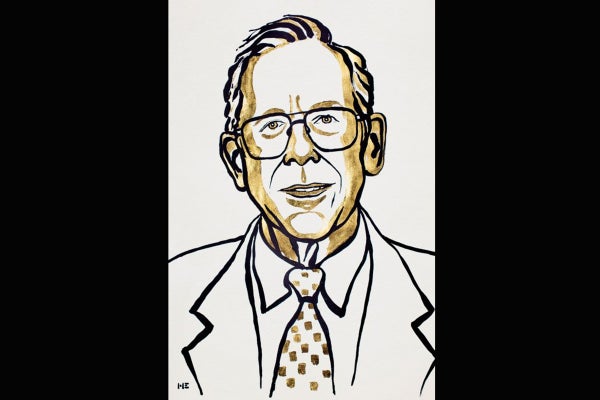This article was published in Scientific American’s former blog network and reflects the views of the author, not necessarily those of Scientific American
Over the past half century, it has been firmly established that our universe expanded over the past 13.8 billion years, emerging from the hot and dense state that we call the big bang. This is an accomplishment of the highest order—on par with those of Galileo or Darwin. A thousand years from now, any descendants we might have will remember the birth of this new science of cosmology.
The remarkable advances in the field of cosmology have been driven by a combination of theoretical and observational work. If you were to judge these developments by the Nobel Prizes they have been awarded, however, you would probably conclude that theoretical physicists didn’t play an important role. Nothing could be further from the truth. Although three Nobels have been awarded for observations related to cosmology (1987, 2006 and 2011), the Nobel Committee has never recognized the work of any of the theorists that built and developed the foundations of the big bang—that is, until this year.
In October of this year, Jim Peebles was awarded the Nobel Prize in Physics “for theoretical discoveries in physical cosmology.” It’s hard to imagine a more deserving recipient. Over the course of his career, Peebles made a long series of seminal contributions to this field. His work was critical in establishing the existence of dark matter, and he substantially advanced our understanding of how the light nuclear elements were formed in the first few minutes after the big bang, as well as how galaxies and clusters of galaxies formed. But much as Newton’s discoveries were made possible by “standing on the shoulders of giants,” Peebles’ remarkable accomplishments were also built upon the foundations of his predecessors.
On supporting science journalism
If you're enjoying this article, consider supporting our award-winning journalism by subscribing. By purchasing a subscription you are helping to ensure the future of impactful stories about the discoveries and ideas shaping our world today.
The science of cosmology was born out of Einstein’s theory of general relativity, and figures such as Alexander Friedman, Willem de Sitter and Georges Lemaître were among the first to recognize one of the most profound consequences of Einstein’s equations: our universe must be evolving, either expanding or contracting with time. When space was later observed to be expanding, this implied that our universe grew out of a much hotter and more compact state. But despite this compelling chain of logic, few scientists at the time took the big bang theory seriously. Cosmology was still something of a fringe science, perceived by many physicists and astronomers to have little predictive power or testability. It had not yet become a “respectable” branch of science.
What changed this state of affairs? Starting in the 1940s, a small group of bold and unorthodox theoretical physicists including George Gamow, Ralph Alpher and Robert Herman began to work out the consequences of the big bang, making predictions that could—and ultimately would—be tested. These pioneers deduced that significant quantities of helium and other light elements should have been formed in the big bang. And even more importantly, they calculated that the early universe must have generated a great deal of light, and deduced that these photons should still fill the entire universe today.
When this light—the cosmic microwave background—was detected in 1964 and later studied in vivid detail, no room was left for reasonable doubt. Through the work of these cosmological pioneers, it had become clear that our universe did, in fact, emerge from a big bang.
Despite the clear successes of cosmology, it took a long time before this branch of science came to be viewed as a reliable and fully legitimate field of study. When I was starting graduate school two decades ago, I often heard my professors discuss the latest results in cosmology as if they were intrinsically suspect—the products of slipshod or haphazard endeavors. Yet the amazing series of discoveries made by cosmologists during that era have held up remarkably well to scrutiny. The skepticism directed toward these efforts was clearly misplaced.
None of the cosmologists I have mentioned in the preceding paragraphs were ever recognized by the Nobel Committee, nor were the contributions of later luminaries such as Robert Dicke (Peebles’ mentor) or Yakov Zeldovich. By the time that cosmology became the mature and “respectable” science that it is today, many of its most important pioneers were gone. When we write the history of science, it is important that we acknolwedge these extraordinary accomplishments, which never received the recognition from the Nobel Committee that they so clearly deserved.
I am delighted to celebrate this year’s Nobel Prize, and the incredible scientific achievements of Jim Peebles.
